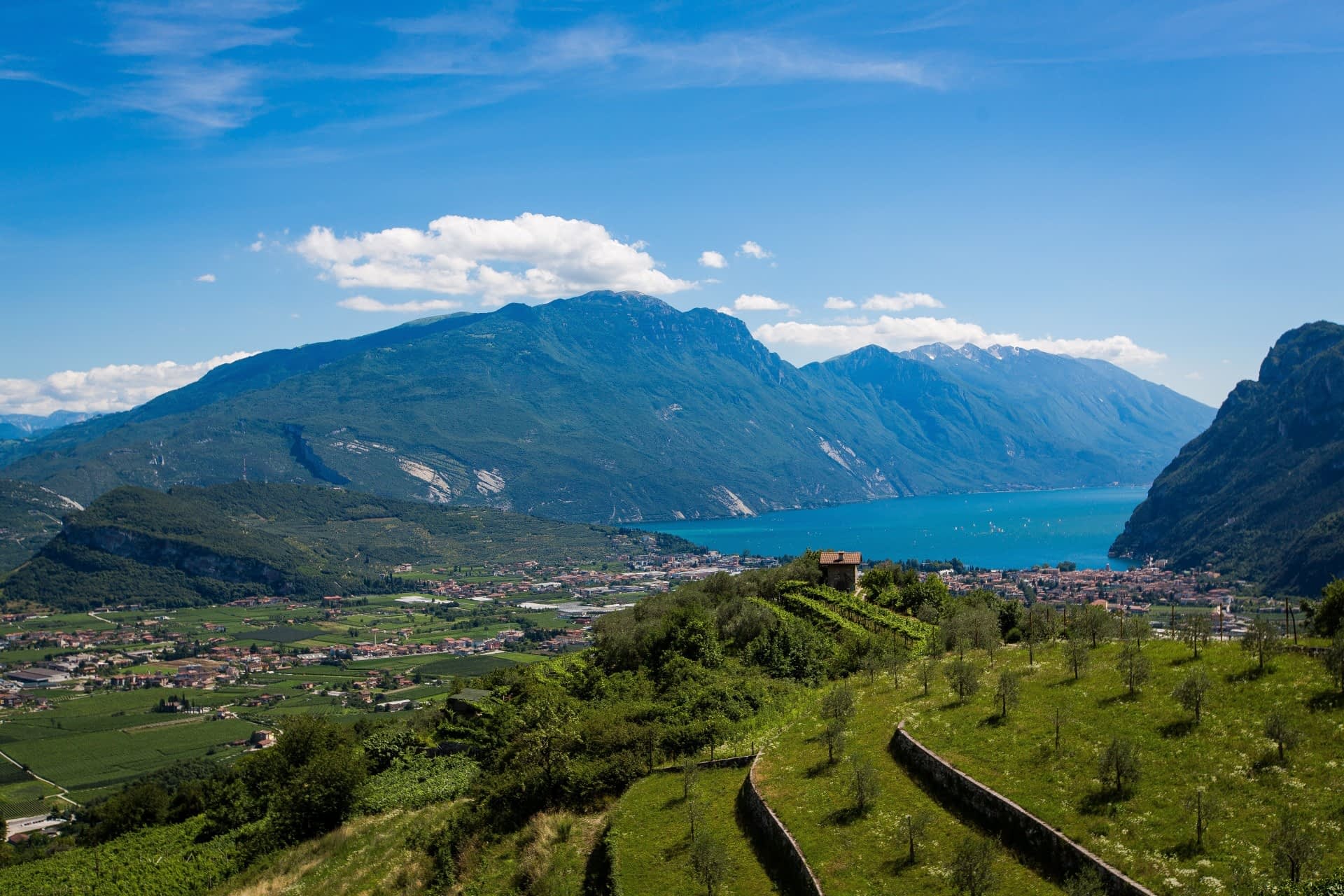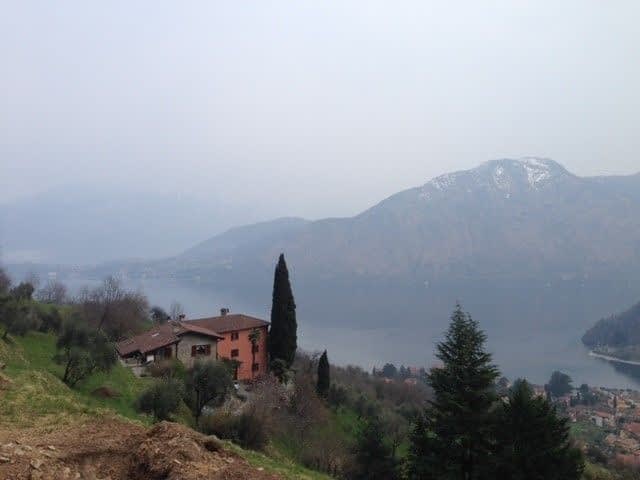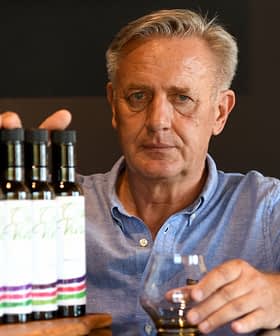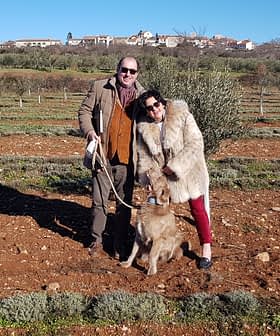Part of our continuing special coverage of the 2022 NYIOOC World Olive Oil Competition.
After a very challenging season, a handful of northern Italian olive oil producers struck gold at the 2022 NYIOOC World Olive Oil Competition.
Producers demonstrated their resilience in the face of weather extremes. However, the ungenerous spring and summer led to significantly lower yields in most areas of northern Italy.
We tried to find the extra virgin olive oil which could express the unique characteristics of our land.
“It has been a very complex harvest in the changing scenario of the last few years,” Furio Battelini, technical director of Agraria Riva del Garda, told Olive Oil Times.
Compounding the climatic challenges of 2021, Battelini added that many of his trees entered the off-year in the natural alternate bearing cycle of the olive tree.
See Also:The Best Olive Oils from Italy“Today’s climate has become way more unpredictable,” he added. “Once in our region, there were alternating results, so you had olive farmers producing less in one area and others producing more in another location. Now the effects of climate are much wider, and we can only hope it will soon return to how it used to be.”
Agraria Riva del Garda once again earned a Gold Award for its 46° Parallelo, an organic extra virgin olive oil.
The producer’s groves are located in Trentino Alto Adige, above Lake Garda, where the Alps contribute to a more mild climate.

Views from the Agraria Riva del Garda olive groves
“Winning this award has been such a satisfaction, even more than in the past because of the season we had,” Battelini said. “We also needed to see the levels we had reached in such a challenging year. You can select your fruits when you have many olives, but if there are only some of them, you just don’t have many options.”
“For the current year, we have high hopes,” he added. “We worked so much, and with the experience, we focused on pruning and modulating fertilization, knowing that this year could be an on-year,” he added.
Climatic challenges abounded for Roveglio as well, a small olive oil producer near Lake Como in Lombardy.
Roveglio is expanding its operations in an area characterized by steep slopes, and 45-degree terraces where ancient olive trees thrive and successfully confront weather extremes requires experience and hard work.
Roveglio won a Gold Award for its Campi Alti extra virgin olive oil produced with a combination of Frantoio and Pendolino olives.
“My family has been here since 1880,” owner Paul Willan told Olive Oil Times. “In the last 20 years, we began expanding olive oil production, growing from 100 to 1,000 trees.”
“We are lucky because our products sport very low acidity levels, which I attribute to the soil,” he added. “We are in the Alps, and the climate is very special in how it combines with the land. In such a northern area, at an altitude of 385 meters upon sea level, this combination yields our extra virgin olive oil.”
Roveglio’s customers mainly comprise the many hotels and restaurants that dot Lake Como’s countryside, a highly touristic area.

Photo: Roveglio
“This area always had a vocation for olive growing, and that is why in our small village, there is an excellent olive oil mill,” Willan said. “Still, agricultural areas on our hill were abandoned over time, and we are now working to recover those abandoned terraces, cleaning up brambles and vegetation to restore farming activities.”
However, coping with the challenges of steep slope agriculture is not the only challenge the company faces in producing its oil.
“Two years ago, we had a massive invasion of marmorated brown spittlebug,” Willan said. “They attacked all the fruits and destroyed our whole production. All of our olives ended up on the grass.”
“Then there is the weather like what has happened this season, with four months in winter without rainfall,” he added. “That led to great stress for the olive trees and a never-seen-before flowering. Then at the beginning of June, a major hailstorm came in, at least halving the number of flowers. That is why we do not know how this year will be.”
To the south of Lombardy, in Emilia-Romagna, Emilia Food Love earned a second-consecutive Gold Award for its Colline di Romagna brand, a delicate blend.
“Winning such an award for us is a great reward and the best confirmation of the good work to which we are committed,” Andrea Magnone, co-owner of Emilia Food Love, told Olive Oil Times.
“By sending our extra virgin olive oil to the competition, we had hoped that our work would be acknowledged,” he added. “The Gold Award allows us to present our work to our customers. They can see how quality does not come by chance.”
The company exports a selection of high-end food products from the region.
“We tried to find the extra virgin olive oil which could express the unique characteristics of our land,” Magnone said. “We went for the higher quality of the Colline di Romagna PDO.”
“In unique markets, such as the United States, we see a lot of Italian-sounding products that seem to be produced in Italy but are not,” he added. “Thanks to these awards and certifications, we can present our customers with a high-quality product that is formally acknowledged. What we see with our customers is that many buy out of curiosity and then come back for bulk purchases.”
In the neighboring Veneto region, Frantoio Bonamini won a Gold Award for its Vert De Vertes, a medium blend that comes exclusively from the early harvest of green olives.
“It has been such a big reward to win the Gold Award, as this is the first time we sent this extra virgin olive oil of ours,” Sabrina Bonamini, co-owner of the company, told Olive Oil Times.
The producer sees the award as a confirmation of its high-quality products. At previous editions of the competition, Frantoio Bonamini was awarded Gold for its Valpolicella PDO.
Today, Frantoio Bonamini comprises approximately 20 hectares of olive trees. Unlike other Italian regions, such as Puglia, most olive groves in Veneto are small and separate from one another. Still, Bonamini is expanding its production area every year.
“A large portion of olive growers in our region are very small producers, with no more than one hectare or 1.5 hectares of land,” Bonamini said. “They are often older people as most of the younger generations are committed to different activities.”
“We feel we have a mission to connect with those owners, eventually buying the land or renting it, with the goal to manage the trees and, when possible, plant new ones,” she concluded.









